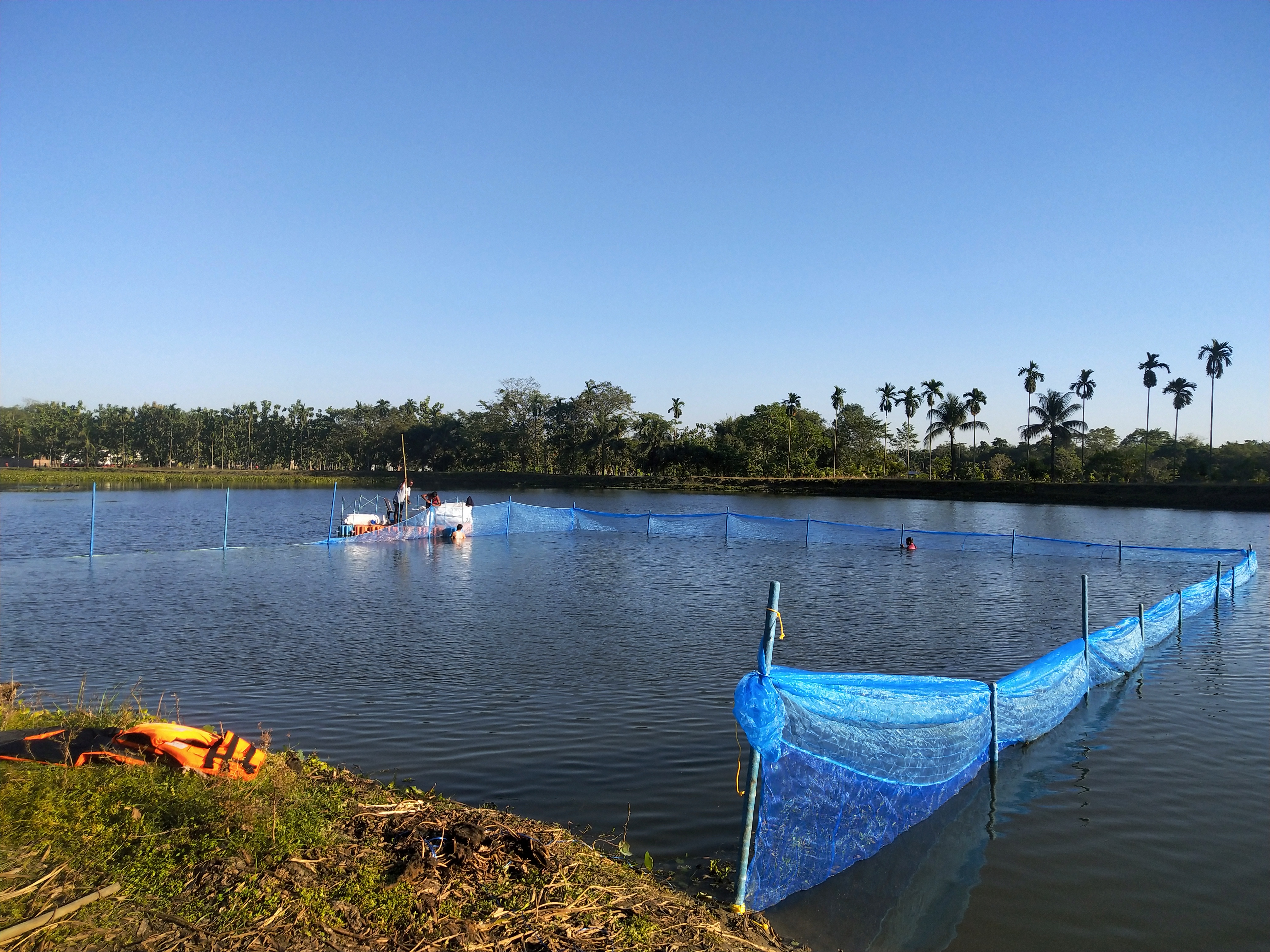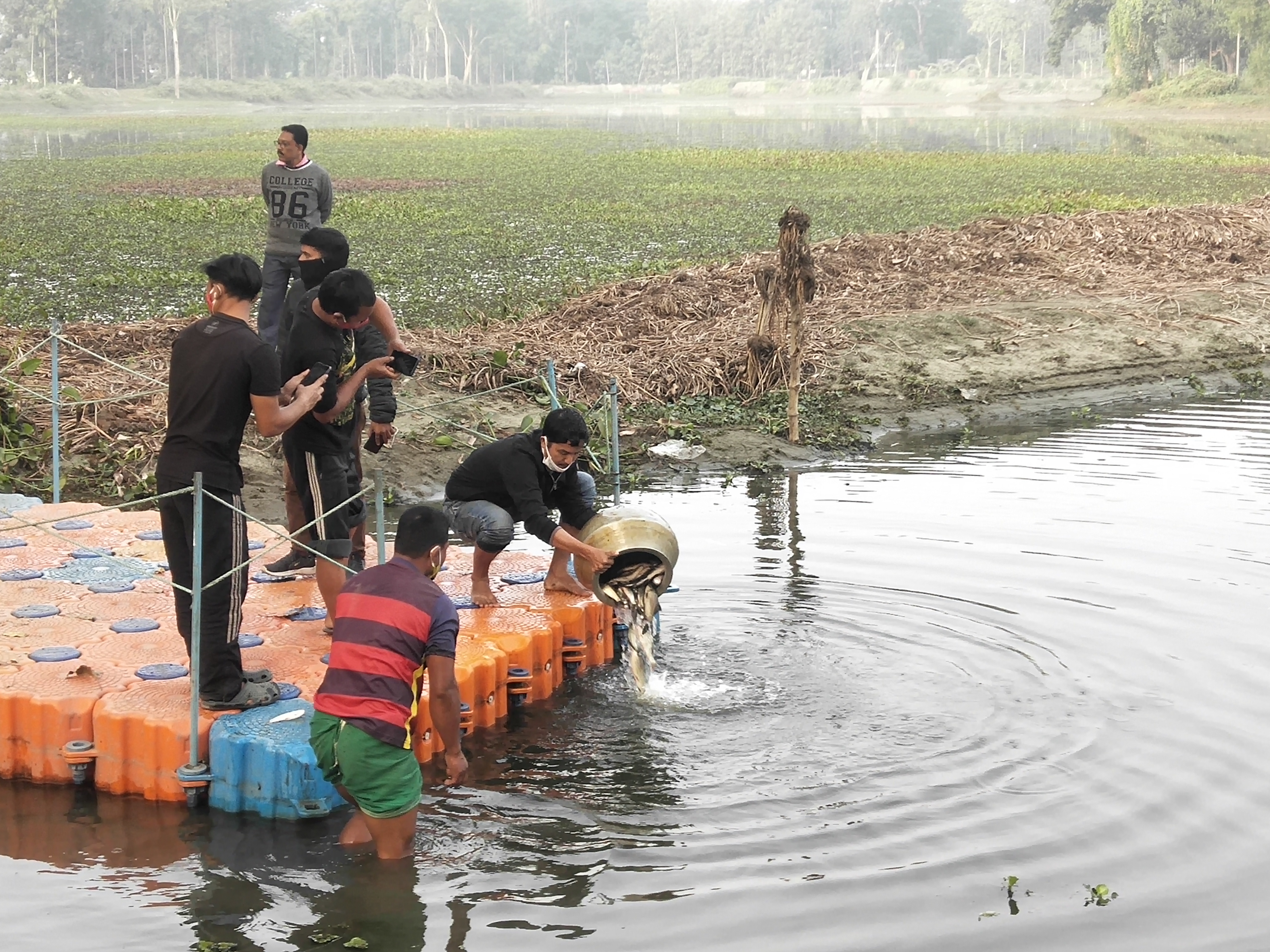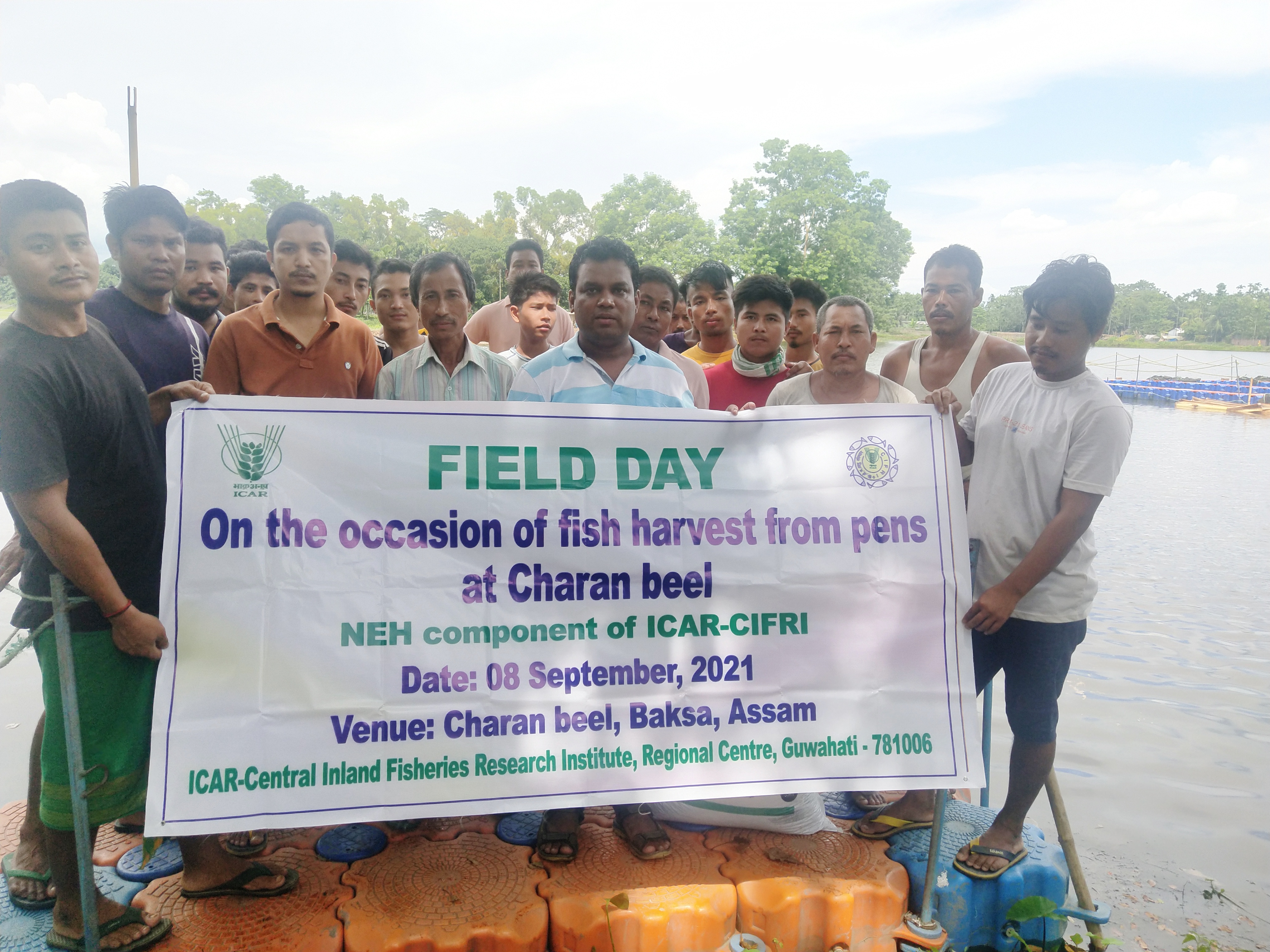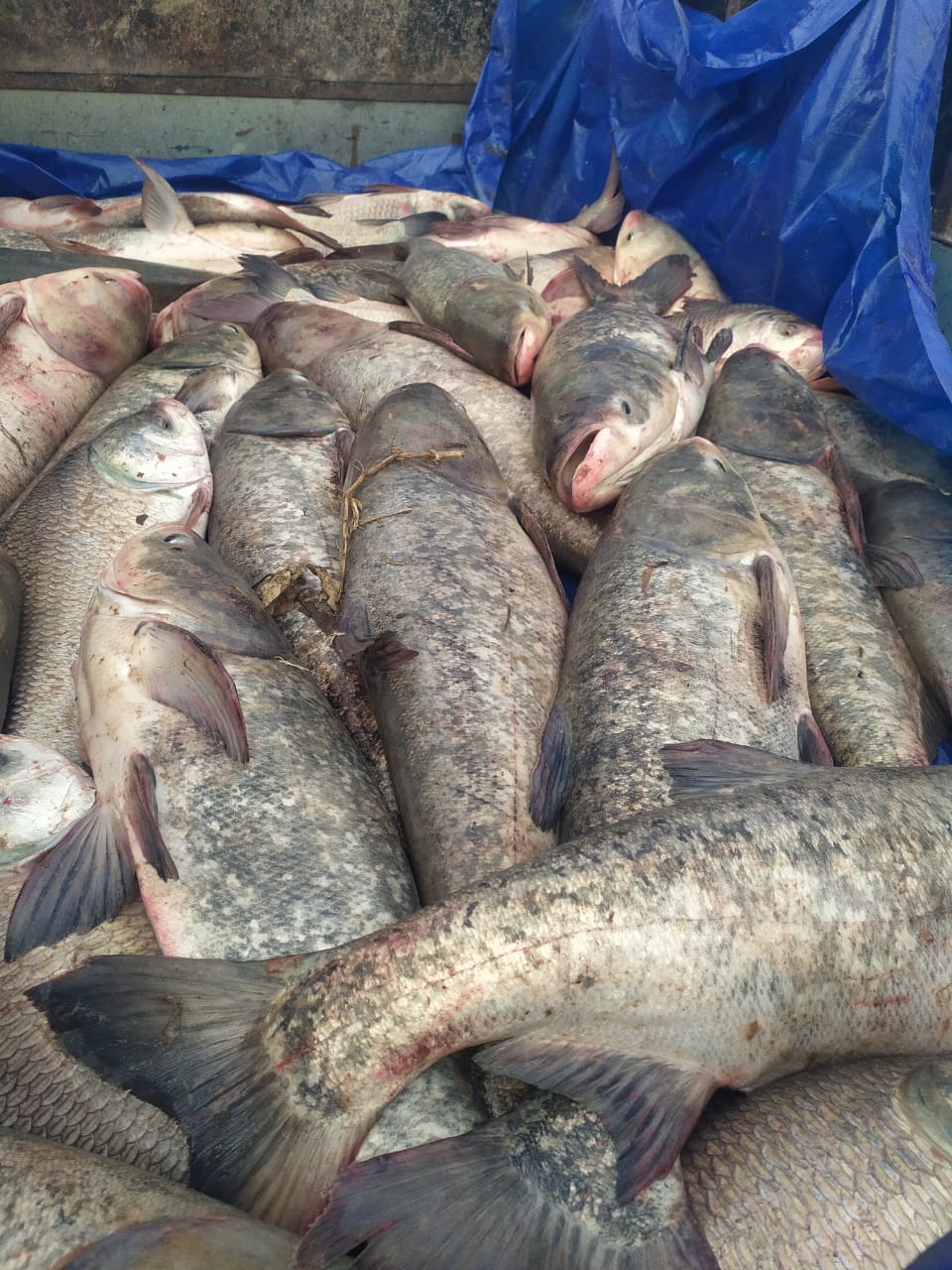Overview
Publications
Recruitment
Intranet
CIFRI Corners'
Culture-based fisheries (CBF) and pen culture technology of ICAR-CIFRI are important production enhancement options for floodplain wetlands.As part of outreach activities initiated by ICAR-CIFRI under leadership of Dr. B.K. Das, Director, ICAR-CIFRI, Barrackporeand guidance of Dr. J.K. Jena, DDG (Fisheries Science), ICAR, New Delhi, the Institute demonstrated culture-based fisheries (CBF) and pen culture in Charanbeel(N 26º 28' 28.62'' and E 91º 40' 12.82''), Baksa district, Assam under NEH component of the Institute.
Charanbeel is a closed floodplain wetland located in Dhulabari, Deulkuchi, Baksa, Assam. It is a small beel having 11 haarea,having water depth of 1.2-3.9 m. A total of 133plain tribal fisher families belonging to Bodo community depend on the beel for meeting their nutritional and livelihood needs. Prior to 2020-21, little or no supplementarystocking was practiced in the beel, due to which fish production was not at desirable level.During 2018-19, total fish production from the beel was reported to be3.18 tonnes and net annual income per fisher family from the beelwas a meagre amount of Rs.3,652.00.
For CBF, advance fingerlings of Indian major carps (IMCs) and medium and minor carps comprising Labeogoniusand Labeobatawere stocked in the beel during December, 2020. As per guidelines formulated by ICAR-CIFRI for CBF in closed beels (having no riverine connectivity), fingerlings were stocked at the rate of 3000 no./ha. A total of 33,000 advance fingerlings were stocked in the beel.Further, pen culture using ICAR-CIFRI HDPE Pen was also carried out in the beel. Fishes were stocked in pens during February-March, 2021 and harvested during 1st week of September, 2021 after six months of culture. Fishes harvested from pens were then released in the beel for production enhancement.
Post demonstration of scientific CBF protocols and pen culture in the beel, fish production in beel increased more than 1.5 times to 5.22 tonnes during 2021-22. Net annual income per fisher family obtained from fishing in the beelalso increased to Rs. 7,519.00 during the period. During 2021-22, successful implementation of CBF and pen culture in Charanbeel led to 64% increase in total fish production and 106% increase in net annual income (from beel fisheries) of 133 local tribal fisher families compared to 2018-19. Per capita fish production (kg/fisher family) increased from 23.89 kg in 2018-19 to 39.23 kg during 2021-22, while fish production per unit area increased more than 1.5 times from 288.91 kg/ha/year to 474.27 kg/ha/year over the period. All activities in the beelwere carried out in co-management mode with active involvement of local tribal fisher community.
Demonstration of CBF and pen culture programmes wereexecuted by Dr. B.K. Bhattacharjya, PS and Head; Mr. A.K. Yadav, Dr. PronobDas, Dr. Simanku Borah, Scientists; and Mr. AmulyaKakati, Senior Technician of ICAR-CIFRI Regional Centre, Guwahati. One awareness programme and one field day were conducted by personnel of ICAR-CIFRI during the course of demonstration.
The local tribal community led by Mr. NarendraBasumatary, President and Mr. JaduSwargiary, Secretary, DhulabariCharanparJanajatiUnnayanSamityexpressed their happiness with the enhanced production and income and promised to continue CBFand pen culture in the beel.




Updated on 25/01/2022










